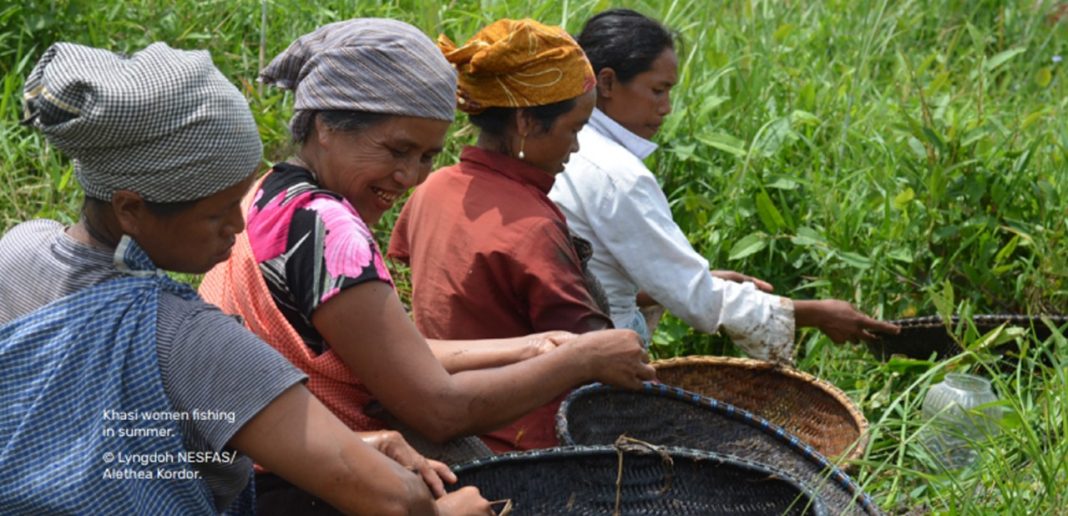Shillong, June 25: The Khasi Food System has gained recognition in “Indigenous Peoples’ Food Systems: Insights on sustainability and resilience from the frontline of climate change”, an international publication by the Food and Agriculture Organization (FAO) of the UN and the Alliance of Bioversity International and CIAT, which was officially launched on Friday through an online event.
The book analyses eight different Indigenous Peoples food systems in Asia, Pacific, Latin America, Arctic and Africa identifies threats affecting their food security and warns about their future and the impacts their disappearance will have on humanity’s ability to adapt to climate change.
The study area was in the Nongtraw community, facilitated by NESFAS and TIP, and it highlights the centrality of Jhum cultivation, which is a rotational form of food generation and production. Dr. Bhogtoram Mawroh PhD, Sr. Associate, NESFAS, and co-author of the Khasi Food System chapter, presented the key findings during the event. The study shows that more than sixty percent of the food produced is from Jhum cultivation and this has enabled the communities to attain autonomy in food production and more than sixty of the diet and income comes from the Jhum-based Indigenous Food System (IFS). The study also records more than sixty species of food plants found in Jhum cultivation. Other key findings include the role of women, which has seen to be prominent for many years in the process of food production.
The chapter for the Khasi Food System is titled “Treasures from shifting cultivation in the Himalayan’s evergreen forest- Jhum, fishing and gathering food system of the Khasi people in Meghalaya, India”. This chapter was authored by community members of Nongtraw village, Meghalaya, India, NESFAS Team; Bhogtoram Mawroh, Ruth Sohtun, Pius Ranee, Melari Nongrum. Phrang Roy, Coordinator, TIP and Founding Chair, NESFAS, along with Gennifer Meldrum, Alliance of Bioversity International and CIAT, Rome, Italy, also penned it.
“Our Indigenous Food Systems (IFS) are determined by self determination and values of sharing and caring,” shared Phrang Roy. IFS can be a game changer because it is evident in Nongtraw community, which upheld strong social, cultural and spiritual values in their food system and well-being.
Dr. Mawroh expressed, “North East India and Meghalaya in particular still maintain strong indigenous food systems. However, this is coming under increasing threat. The study helps in shedding light on the sustainability of the Indigenous Peoples’ food systems and bringing out lessons for resilience and sustainability of the food systems in general. These will help policy makers around the globe to customize their own policies on food for sustainable development.”
NESFAS is one of the few indigenous organisations from around the world that is part of this global study. A key take-away from this study was that severe food insecurity is non-existent, and Nongtraw has come out as an example to demonstrate that indigenous food systems, such as the Jhum cultivation, have a very important role to play in achieving the target of Zero Hunger.
(Link for the book: http://www.fao.org/documents/card/en/c/cb5131en)





